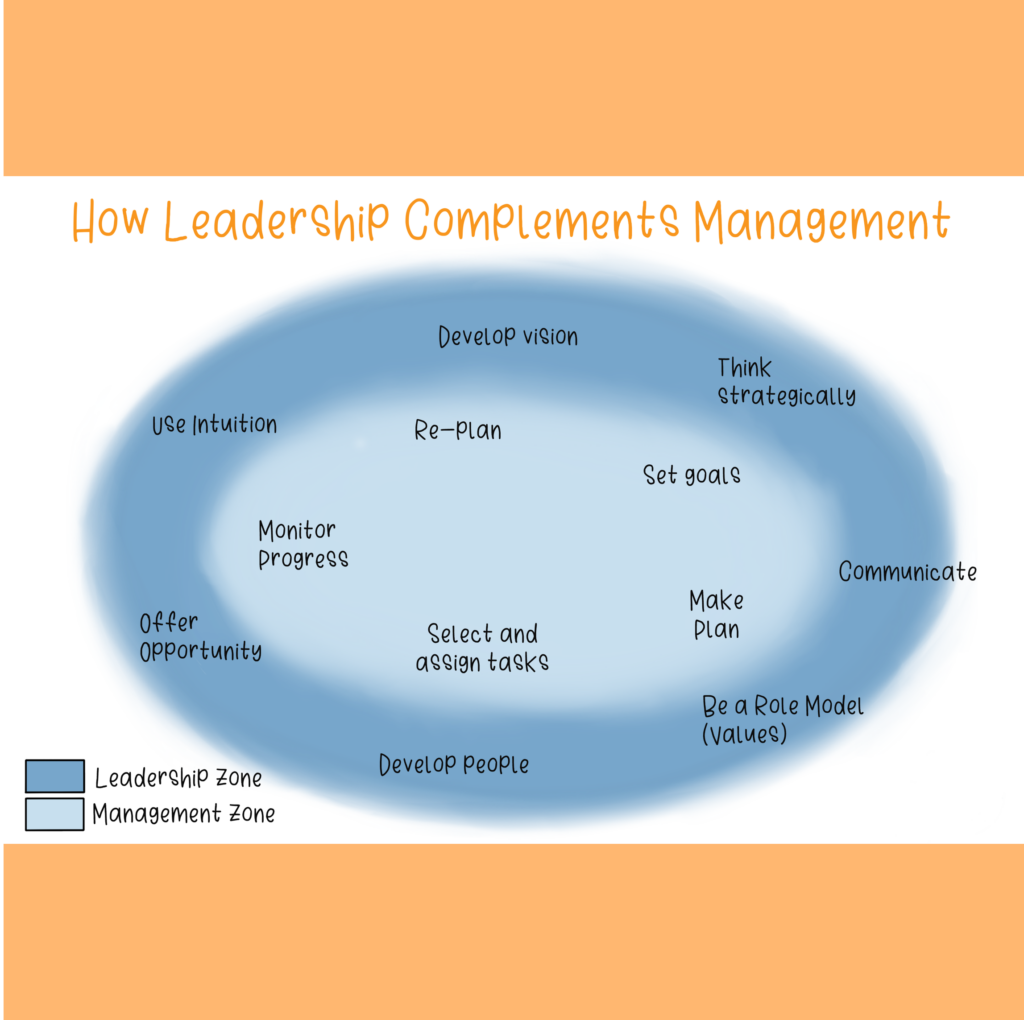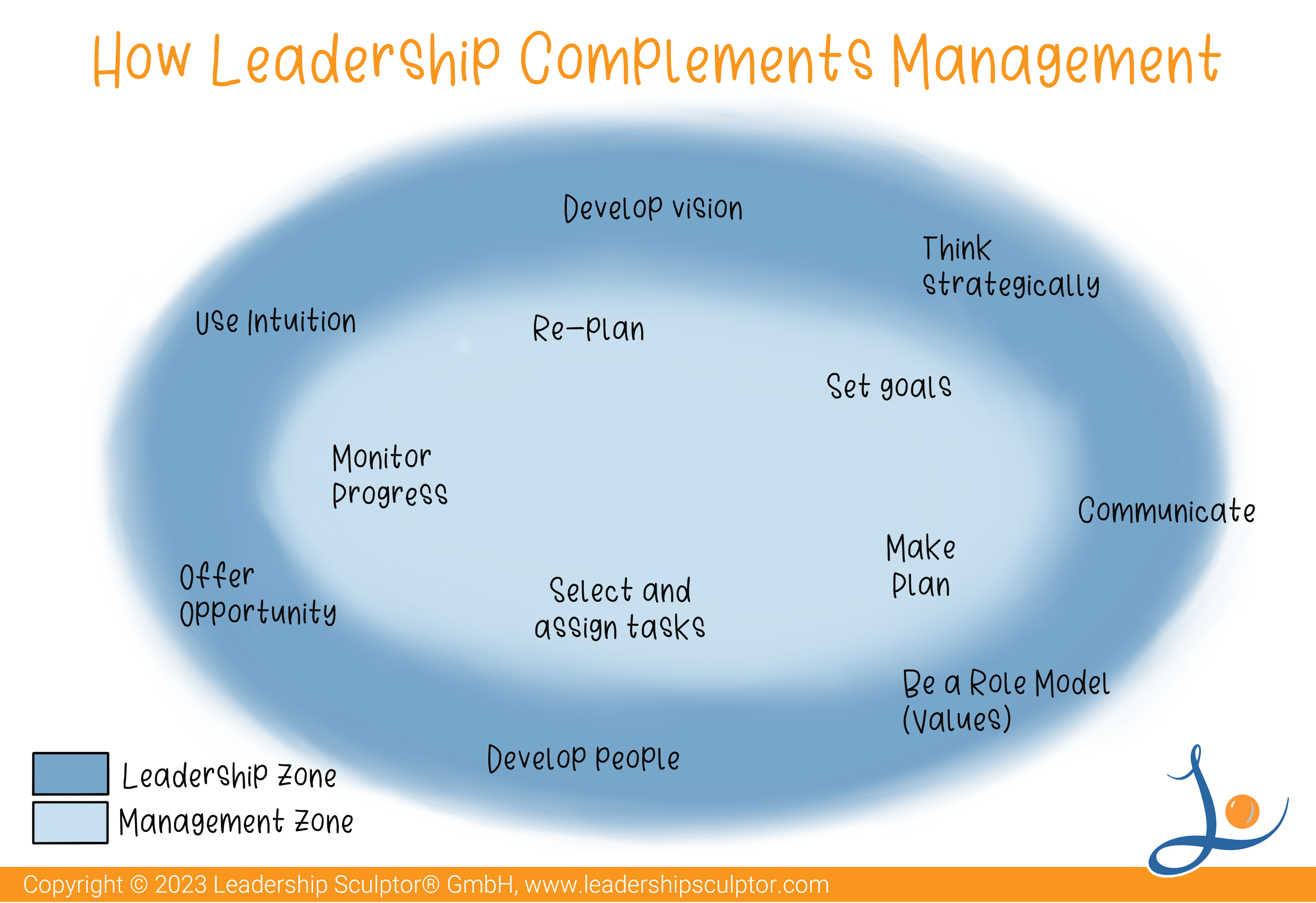

I’m often asked about the difference between leadership and management. While it is helpful to be clear about the differences, you need to be able to both lead and manage if you want to produce top results and people.
Field Marshal Lord Slim, responsible for the British campaign in Burma in WWII and a great thinker on leadership, summed up the difference thus:
“There is a difference between leadership and management. The leader and the men who follow him represent one of the oldest, most natural, and most effective of all human relationships. The manager and those he manages are a later product with neither so romantic nor so inspiring a history. Leadership is of the spirit, compounded of personality and vision. Its practice is an art. Management is of the mind, more a matter of accurate calculations, statistics, methods, timetables, and routine. Its practice is a science. Managers are necessary, leaders are essential.”
Here is a chart I use to illustrate the difference:
The tasks in the management zone require a certain degree of intelligence and discipline. Those in the leadership zone largely benefit from emotional and social intelligence. While some tasks are purely leadership (e.g. developing a vision) and others purely management (e.g. planning), many require a blend of the two (e.g. developing staff).
To succeed, you need strength in both areas: an excellent manager with no leadership qualities will ensure that the experiments are completed; however, there is no guarantee that the results shed light on the right question. An excellent leader with no management skills can develop and communicate wonderful visions; however, these will never materialise. The former is a technocrat, the latter a dreamer.
I surround the management zone with the leadership zone (rather than vice versa) in this model since most researchers who move into leadership positions start out with a reasonable level of management ability and need to expand their skills and capabilities into the leadership zone.
If you want to determine where your centre of gravity is between management and leadership, complete the following experiment: write down your six most important tasks (not necessarily the most time-consuming). Then place them on an axis with management at one end and leadership at the other. Some tasks will be at one end or the other, and others will be somewhere in-between; this reflects that they need a blend of management and leadership. When you look at how you’ve positioned these six, you get a sense of whether your centre of gravity for the six is closer to management and leadership.
I’d like to hear from you how you get on with this exercise.



